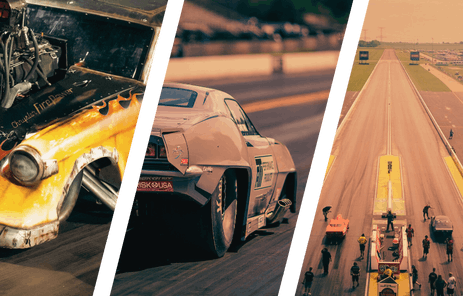 Diamond Pistons just released a set of pistons with their new Diamond double-coating. These pistons can benefit any engine, but they shine the most in power adder applications thanks to a hard-coat anodizing with a moly-skirt coating. The coating on these pistons will help with decreasing heat, corrosion, and wear.
Diamond Pistons just released a set of pistons with their new Diamond double-coating. These pistons can benefit any engine, but they shine the most in power adder applications thanks to a hard-coat anodizing with a moly-skirt coating. The coating on these pistons will help with decreasing heat, corrosion, and wear.
Official Release
DOUBLE-DIAMOND COATINGS: FIRST PRODUCTION COMPETITION PISTONS COMBINING HEAT-RESISTING WITH FRICTION-REDUCING COATINGS
Diamond Pistons has introduced an ambitious new formula—a notable step forward in piston performance—the Diamond double-coat.
By combining hard-coat anodizing with a moly-skirt coating, Diamond’s double-coat pistons will benefit all engines but is particularly useful in power-adder applications.
The anodizing process provides a thermal barrier and increases both corrosion-resistance and wear-resistance. It also deters piston rings from micro welding themselves to the ring grooves and it creates an excellent adhesion surface. The baked-on molybdenum dry-film lubricant skirt coating provides an anti-friction anti-scuffing surface; hence this new combination resists high cylinder temperatures and pressures and frees-up a little more power.
To compensate for the additional build-up from the anodizing process, extra machining clearances are required, about .002-inch on the piston diameter and also on the width and depth of the ring grooves. Then the pistons are submerged in a detergent-acid bath, followed by two rinses before the anodizing process and three rinses after.
In the coating room, five light coats of the moly dry-film lubricant are applied to the pistons, which are then baked in an oven for an hour.
Diamond, who has been developing and testing their double-coat procedures for over two years, conducts all their coating processes in-house. The turn-around time for the Diamond double-coat process is about two days and the cost is $50 per piston. Single coatings, either anodizing or moly-skirt, are still available.
- Will benefit any engine but are more useful in power-adder applications
- The anodizing process provides a thermal barrier and increases both corrosion-resistance and wear-resistance
- The baked-on molybdenum dry-film lubricant skirt coating provides an anti-friction anti-scuffing surface
You might also like
Historic 68th March Meet Returns to Famoso This March
The 68th March Meet returns to Famoso Dragstrip with Nitro racing and nostalgia cars. The historic event runs March 5-8.


